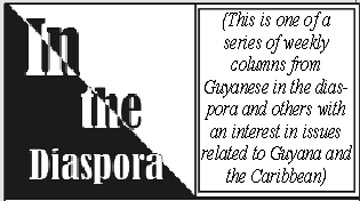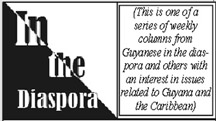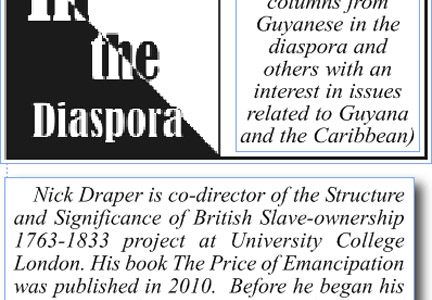
Hunger for Justice: Support the California Prisoners Hunger Strikers & Justice for Trayvon Martin
By Margaret Prescod Editor’s Note: This week’s column is being carried because of its subject matters.

By Margaret Prescod Editor’s Note: This week’s column is being carried because of its subject matters.

By Stephanie Leitch Stephanie Leitch is an independent gender and equality advocate and a postgraduate student at the Institute of Gender and Development Studies at the University of the West Indies, St.

Adom Philogene Heron is a doctoral candidate in Social Anthropology and associate of the Centre for Caribbean, Latin American and Amerindian Studies (CAS) at the University of St.

By Kimalee Phillip An African woman born and raised in Grenada, Kimalee Phillip is an anti-colonial labour and community organizer and independent researcher.

By Vidyaratha Kissoon 2013 is an interesting year in the Caribbean for lesbian, gay, bisexual, transgender and intersex (LGBTI) equality.

By Vidyaratha Kissoon (2013 is an interesting year in the Caribbean for lesbian, gay, bisexual, transgender and intersex (LGBTI) equality.

By Joel Simpson Joel Simpson is one of the Founders and current Co-Chairperson of the Society Against Sexual Orientation Discrimination (SASOD) in Guyana As SASOD marked its 10th anniversary on June 7, it seems an opportune time to reflect on where we are as a nation in achieving human rights and equality for all Guyanese – especially lesbian, gay, bisexual and transgender (LGBT) citizens of this country.
By Saieed I. Khalil (Saieed I. Khalil is an eighteen year old third year economics major at the University of Guyana) “The way we communicate and who communicates for us significantly impact on our development as a society” – Emille A.

Hilbourne A. Watson is Professor of International Relations at Bucknell University, Lewisburg, Pennsylvania By Hilbourne Watson In a follow up article, “Kick CARICOM to the Kerb” (Part 2), carried in the Jamaica Gleaner, May 19, Ronald Mason continues his diatribe against regional integration to justify his belief that Jamaica should leave CARICOM.

By Hilbourne Watson Hilbourne A. Watson is Professor of International Relations at Bucknell University, Lewisburg, Pennsylvania Editor’s Note: A shorter version of this article appeared in the Jamaica Gleaner on May 12, 2013.

By Joel Simpson Joel Simpson is a Guyanese Chevening scholar currently pursuing a Master of Laws in Human Rights Law at the University of Nottingham, and Co-Chair of the Society Against Sexual Orientation Discrimination (SASOD).

By Jeremy Poynting Jeremy Poynting is Managing Editor of Peepal Tree Press We came to Guyana after four days at the Bocas Litfest in Trinidad and Tobago.

By Nalini Mohabir This essay was originally written for the commemorative magazine of the Vedic Cultural Centre in Markham, Ontario.

By Harold Drayton Harold A. Drayton served as the First Deputy Vice-Chancellor (1963-1964) at the University of Guyana, and as Professor and Head of the Department of Biology.

Dr. Arif Bulkan teaches constitutional law and Caribbean human rights law at the St.

By Selma James Selma James is founder of the International Wages for Housework Campaign and author of The Power of Women and the Subversion of the Community, and Sex, Race, and Class – the Perspective of Winning Editor’s Note: This article first appeared in the London Guardian, April 2, 2013.

Dr. Maya Trotz is an Associate Professor of Environmental Engineering at the University of South Florida.

By Nick Draper Thousands of absentee slave-owners in Britain, as well as in the Caribbean, received compensation for their ‘property’ in enslaved people when slavery was abolished between 1834 and 1838.

Diana Paton is Reader in Caribbean History at Newcastle University in the UK.

Gaiutra Bahadur is a Guyanese-American journalist who has devoted much of her career to telling the stories of immigrants, refugees and asylum seekers.
The ePaper edition, on the Web & in stores for Android, iPhone & iPad.
Included free with your web subscription. Learn more.